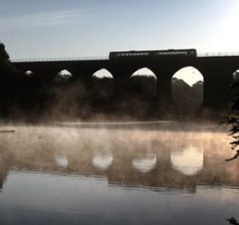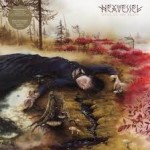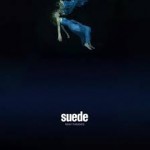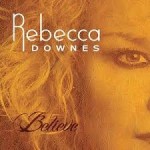A gig in an 800 year old church is not quite like your usual rock venue. Being an Anglican church, there’s still a bar, but it doesn’t sell any beer, only wine. And the acoustics are always wonderful, because medieval architects knew what they were doing. Peter Knight’s Gigspanner came to All Saints’ in Wokingham on a cold Friday night, and pulled more than double the crowd that had attended their gig in Reading back in November.
Though billed as a folk act, Gigspanner cannot be contained within narrow genre pigeonholes. The opening number was a case in point, beginning as an evocative classical-style violin solo which slowly morphed into a folk jig. The dark “Death and the Lady” took on a rock feel with Peter Knight on electric violin and some Dire Straits style guitar flourishes. The instrumental encore even had touches of jazz with everyone doing a solo.
The set drew heavily from their most recent album “Layers of Ages”. “Mad Tom of Bedlam” was an early highlight, as was “Bows of London”, the latter telling the tale of a drowned girl made into a violin exemplifying just how dark some traditional folk ballads can be.
It’s really Peter Knight’s show; his evocative and lyrical playing makes him to the violin what Steve Rothery is to the guitar, and he sings lead on the vocal numbers. Though guitarist Roger Flack and percussionist Vincent Salzfaas hahaved their time in the spotlight, including a Frampton Comes Alive moment with talk box guitar on “Mad Tom of Bedlam”, they both play more more of a supporting role. But what comes over strongly is the trio’s near telepathic understanding of each other on stage, such that often complex arrangements still retained an air of spontaneity.
Gigspanner are on tour for much of the next couple of months, though quite a few dates in small intimate venues have already sold out. If you get the chance to see them, go, even if you’re not a hard-core folk fan. They really are an excellent live band.



 “The Nostalgia Factory” by John Mitchell is the first release by White Star Records. Aside from a couple of backing vocals by former Touchstone singer Kim Seviour. John Mitchell plays and sings everything on this record himself. The only thing he didn’t do this time is write the songs. Though he’s a songwriter so prolific other musicians can’t keep up with him, this four-song EP is a record of covers.
“The Nostalgia Factory” by John Mitchell is the first release by White Star Records. Aside from a couple of backing vocals by former Touchstone singer Kim Seviour. John Mitchell plays and sings everything on this record himself. The only thing he didn’t do this time is write the songs. Though he’s a songwriter so prolific other musicians can’t keep up with him, this four-song EP is a record of covers.

 Along with the likes of Knifeworld, Purson and fellow Finns Jess and the Ancient Ones, Finland’s Hexvessel bring the weird and wonderful world of late 60s psychedelia into the 21st century. Song titles like “Transparent Eyeball” and “Cosmic Dreams” make it clear where they’ve coming from, even if calling a song “Mushroom Spirit Doors” does sound as though they’re taking the piss.
Along with the likes of Knifeworld, Purson and fellow Finns Jess and the Ancient Ones, Finland’s Hexvessel bring the weird and wonderful world of late 60s psychedelia into the 21st century. Song titles like “Transparent Eyeball” and “Cosmic Dreams” make it clear where they’ve coming from, even if calling a song “Mushroom Spirit Doors” does sound as though they’re taking the piss. The situation with The Guardian’s
The situation with The Guardian’s  Suede were always one of the more interesting bands from the Britpop era. Their dark lyrical themes and sometimes florid music meant they little in common with the likes of Oasis or Blur.
Suede were always one of the more interesting bands from the Britpop era. Their dark lyrical themes and sometimes florid music meant they little in common with the likes of Oasis or Blur. Along with the likes of Chantel McGregor and Jodie Marie, Rebecca Downes is a female blues-rock artist revitalising a traditional form for the 21st century, in her case turning down offers from X-Factor producers because she’d rather make real music of her own than someone else’s formulaic product.
Along with the likes of Chantel McGregor and Jodie Marie, Rebecca Downes is a female blues-rock artist revitalising a traditional form for the 21st century, in her case turning down offers from X-Factor producers because she’d rather make real music of her own than someone else’s formulaic product.